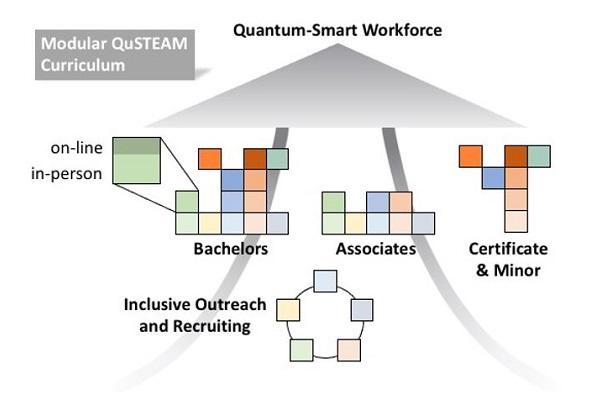
The Institute for Optical Science Monthly Webinar Series
Title: Challenges and Opportunities in Training a
Quantum-Ready Workforce
Ezekiel Johnston-Halperin, The Ohio State University

Abstract: The emergence of quantum information science and technology (QIST) has been characterized as a “second quantum revolution”. Recent breakthroughs in quantum computing, communication, and sensing demonstrate the potential for new technologies that exploit entanglement and related exotic aspects of quantum theory to make transformative impacts on their respective fields. This application development is proceeding in tandem with advances in fundamental science in an accelerating cycle comparable to previous revolutions in semiconductor electronics, nanotechnology, etc. However, if the full societal impact of these advances is to be realized, it is critical that we develop a quantum-ready STEM workforce with the breadth and scope required to foster the emerging quantum economy. Comparison to the existing STEM workforce is illuminating in this context and reveals that over 70% of STEM workers do not have a post-graduate degree. This presents educators with both challenge and opportunity, e.g. the need to stand up new technical curricula that provide appropriate training for a quantum economy and the opportunity to reimagine STEM education without the biases and filters inherited from the parent disciplines of QIST. Here I will discuss a new NSF funded program aimed at addressing these challenges and exploiting these opportunities, QuSTEAM: Convergent undergraduate education in Quantum Science, Technology, Engineering, Arts, and Mathematics. The QuSTEAM team consists of 19 faculty across five universities: Ohio State, University of Chicago, Michigan State University, Chicago State and the University of Illinois at Urbana-Champaign. QuSTEAM has also partnered with industry and national laboratory collaborators, including Applied Materials, HRL Laboratories, IBM and Argonne National Laboratory. The QuSTEAM team, which consists of experts in subject matter, pedagogical practices and workforce development will develop modules built around single concepts that can be arranged to shape an array of educational paths — from bachelor’s and associate’s degrees to certificates and minors. This modular curriculum will provide educational opportunities for two- and four-year institutions, minority-serving institutions and industries. It addresses the need for diversity and inclusion in both STEM education and the STEM workforce, systematically building a structure that works to undo barriers that have historically limited inclusivity.
Watch the recorded webinar here
